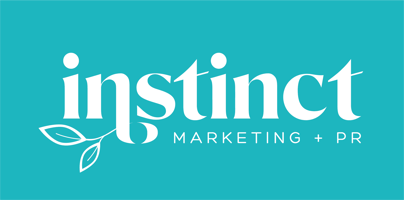Happy New Year folks and a warm welcome to our new blog series for 2023, ‘This Month We Meet…’...
Motivation is garbage.
I heard this statement several years ago from Mel Robbins (The 5 Second Rule) and it really struck a chord with me. It also felt to me like it tied in well with the teaching of the Jedi Master Yoda – “Do or do not, there is no try”.
"Motivation" is a word that's used a lot, whether in self-help books, corporate seminars, or even in casual conversations. We're constantly bombarded with quotes and memes urging us to "stay motivated" or to "find our motivation." But what if I told you that motivation, as we commonly understand it, doesn't really exist?
From my perspective as a psychologist, our actions are the result of cognitive evaluations – a mental process where we weigh the perceived effort required against the potential benefits or outcomes. This idea aligns perfectly with the marketing philosophies of thought leaders like Seth Godin, Simon Sinek, Marcus Sheridan, and Daniel Priestley, who emphasise understanding the 'why' behind people's choices and behaviours.
The power of tribes and permission marketing
Seth Godin talks about the power of tribes and permission marketing. He teaches us that people are more likely to engage with brands that they feel a part of, and those that have earned their trust and permission. This aligns with the cognitive evaluation model – people choose to engage when they see value in being part of a tribe or when they perceive the benefits of allowing a brand into their lives outweigh the effort.
Starting with ‘why’
Simon Sinek's famous principle of "Start with Why" fits seamlessly into this discussion. He argues that people don't buy what you do, they buy why you do it. When people understand and resonate with your 'why', their cognitive evaluation tilts in favour of engaging with you because the perceived outcome (alignment with their values) outweighs the effort.
They ask, you answer
Marcus Sheridan's approach of addressing customer queries directly in "They Ask, You Answer" is another perfect example. When businesses provide clear and honest answers to potential customers' questions, they help reduce the perceived effort involved in deciding. The easier it is for customers to get the information they need, the more likely they are to perceive the outcome (a well-informed choice) as worth the effort. This is comparable to the technique in psychology known as motivational interviewing, whereby working through the challenges and barriers associated with a desired behaviour change, for example stopping smoking, you help the client to make a positive choice.
The cognitive equation in practice
In practice, the cognitive evaluation process can be seen in many aspects of our lives:
- Exercise: People often say they lack motivation to exercise. In reality, they are evaluating the effort of working out against the perceived benefits. If the immediate effort (sweating, time spent) feels greater than the long-term benefits (health, fitness), they might choose not to exercise. This is also closely related to the concept of delayed gratification and its role in our decision making.
- Work: At work, we prioritise tasks based on this cognitive evaluation. If a task seems too daunting with minimal immediate payoff, we’re likely to procrastinate. However, if the benefits are clear and substantial, we’re more inclined to dive in.
- Consumer choices: As consumers, we constantly evaluate products and services. We choose those that promise the greatest benefit for the least effort – whether it’s a user-friendly app, a product with great reviews, or a service recommended by a trusted source.
A lighthearted take
Imagine you’re at a buffet with a wide array of dishes. You’re evaluating what to put on your plate. The roasted vegetables look healthy (benefit) but are at the far end of the table (effort). The pizza is right in front of you (low effort), but you’re trying to eat healthier (low benefit). Your decision isn’t about “motivation” but about which choice provides the best balance of effort and benefit according to your current values and goals.
So what are the marketing implications?
For marketers, understanding this cognitive evaluation process is crucial. It’s not about trying to create motivation, but about reducing the perceived effort and enhancing the perceived benefits for your audience.
Here’s how:
- Simplify the process: Make it easy for your audience to engage with your brand. Clear calls to action, intuitive navigation, and frictionless purchasing processes reduce the effort involved.
- Highlight the benefits: Clearly communicate the practical and emotional benefits of your product or service. Use testimonials, case studies, and value propositions to show the positive outcomes of choosing your brand.
- Build trust and credibility: As Seth Godin and Simon Sinek emphasise, trust and a strong 'why' are powerful motivators. Show your audience that you understand their needs and values.
- Provide valuable content: Following Sheridan’s advice, offer valuable and relevant content that answers your audience’s questions. This positions you as a helpful resource, making the decision-making process easier for them.
In conclusion, the concept of motivation is a simplified and often misleading way of understanding human behaviour. By recognising that our choices are driven by a cognitive evaluation of effort versus benefits, we can better understand how to influence behaviour – whether in marketing or in our personal lives.
So, the next time you find yourself or someone else struggling with “motivation,” take a step back and consider the cognitive evaluation at play. You might just find that the solution lies in rebalancing the equation, not in searching for a mythical surge of motivation.
Or to put it another way… be more Yoda!



